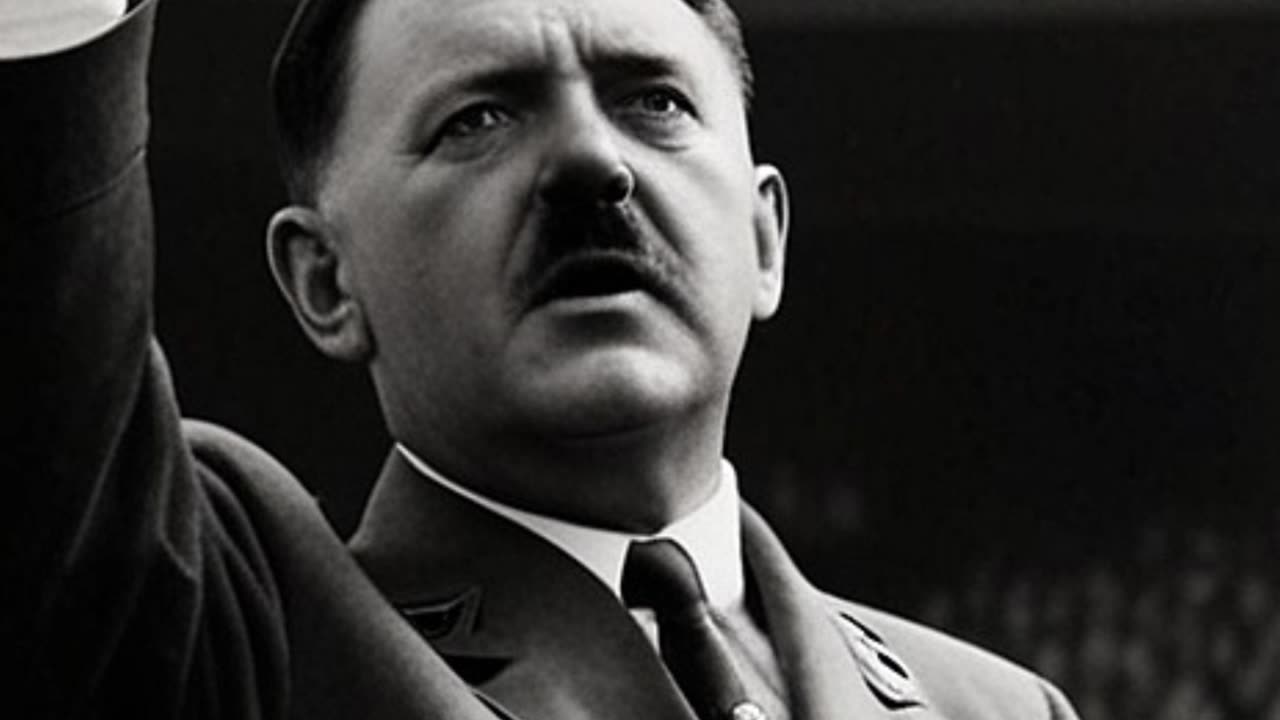Premium Only Content

Hitler's Speech at the Reichstag - October 6, 1939
Background Leading Up to Hitler's Speech at the Reichstag - October 6, 1939
Invasion of Poland: On September 1, 1939, Germany invaded Poland, triggering the start of World War II. This invasion was quickly followed by the Soviet Union's invasion of Poland from the east on September 17, 1939, as part of the Molotov-Ribbentrop Pact.
Rapid German Victory: The German military campaign, known as Blitzkrieg (lightning war), quickly overwhelmed Polish forces. By early October, Poland was defeated and partitioned between Germany and the Soviet Union.
International Response: The invasion of Poland led to Britain and France declaring war on Germany on September 3, 1939. However, there was limited military action from the Western Allies during this period, often referred to as the Phoney War.
Hitler's Speech at the Reichstag - October 6, 1939
On October 6, 1939, Adolf Hitler delivered a speech at the Reichstag following the successful invasion and partition of Poland. This speech aimed to justify the actions taken, to outline Germany's position, and to present his vision for the future.
Key Points of Hitler's Speech:
Justification of the Invasion: Hitler began by justifying the invasion of Poland. He argued that Germany had been forced into action due to Poland's aggressive policies and the refusal of the Polish government to negotiate territorial disputes, particularly concerning the Free City of Danzig and the Polish Corridor.
Blame on Poland and Allies: Hitler placed the blame for the conflict on Poland and its Western allies, Britain and France. He accused these nations of encircling Germany and attempting to stifle its rightful growth and development.
Defense of German Actions: Hitler emphasized that Germany's actions were defensive and necessary to secure its borders and protect ethnic Germans in Poland. He presented the invasion as a legitimate response to external threats and provocations.
Peace Proposals: In a strategic move, Hitler offered peace proposals to Britain and France, suggesting that they recognize Germany's new territorial acquisitions and come to an agreement to avoid further conflict. He claimed that Germany had no further territorial ambitions in Europe and sought peace.
Vision for Europe: Hitler outlined his vision for a new European order, based on the principles of national self-determination and the restructuring of territorial boundaries. He argued that this new order would ensure stability and peace in the long term.
Appeal to the German People: Hitler praised the German military and the German people for their contributions to the swift victory in Poland. He called for continued unity and support for the Nazi regime, emphasizing the importance of national solidarity in the face of international challenges.
Analysis:
Strategic Justification: Hitler's speech was aimed at providing a strategic justification for the invasion of Poland, portraying it as a defensive action forced upon Germany by external threats and Polish intransigence. This was intended to rally domestic support and to counter any international criticism.
Blame-Shifting: By placing the blame on Poland and the Western Allies, Hitler sought to absolve Germany of responsibility for starting the war. This narrative was aimed at undermining the moral and political position of Britain and France.
Peace Proposals: The offer of peace proposals can be seen as a tactical move to present Germany as reasonable and open to negotiation. This was likely aimed at both domestic and international audiences, attempting to portray Germany as seeking peace rather than further conflict.
Vision of a New Order: Hitler's vision for a new European order reflected the broader goals of Nazi ideology, which included the restructuring of Europe along ethnic and national lines under German dominance. This was a precursor to the more extensive plans for European domination that would unfold during the war.
Rallying National Support: The speech aimed to bolster national support for the war effort and to strengthen the unity and resolve of the German people. By praising the military and emphasizing the need for solidarity, Hitler sought to maintain high morale and commitment to the Nazi cause.
Overall, Hitler's speech at the Reichstag on October 6, 1939, was a calculated effort to justify Germany's aggressive actions, to present a facade of reasonableness and desire for peace, and to outline his vision for a new European order under Nazi hegemony. This speech was an important part of Hitler's broader strategy to secure domestic and international support for his regime's expansionist ambitions.
-
 20:09
20:09
Exploring With Nug
13 hours ago $1.64 earnedVanished After Driving Away… I Spent the Day Searching Lakes
39.2K2 -
 1:14:13
1:14:13
Glenn Greenwald
5 hours agoLee Fang and Leighton Woodhouse Look Back on Trump’s First 100 Days; Lara Friedman on New Laws Barring Israel Criticism | SYSTEM UPDATE #446
91.5K52 -
 LIVE
LIVE
ZWOGs
11 hours ago🔴LIVE IN 1440p! - DEATH STRANDING 1 - PLAYTHROUGH | DAY 4 | - Come Hang Out!
88 watching -
 1:45:28
1:45:28
Joker Effect
3 hours agoWhy aren't you trying to enjoy yourself? Live a little! go.mother.land/Joker
15.3K1 -
 2:06:37
2:06:37
Geeks + Gamers
3 hours agoMARIO KART WARS
12.1K -
 1:14:12
1:14:12
Right Side Broadcasting Network
5 days agoLIVE: Exclusive White House Special: President Trump's First 100 Days - 4/30/25
68.3K19 -
 1:02:30
1:02:30
BonginoReport
8 hours agoFBI Demotes Woke Agents Who Kneeled for George Floyd (Ep. 38) - Nightly Scroll with Hayley
118K116 -
 2:08:04
2:08:04
Tucker Carlson
6 hours agoMatt Walsh: Any country that can’t function without American aid has no right to exist.
116K195 -
 14:09
14:09
China Uncensored
9 hours agoThis Is China's LAST CHANCE Survive the Tariff War
29.8K15 -
 43:48
43:48
The Kevin Trudeau Show
14 hours agoHow I Manage My Time (And Get 10x More Done)
21.3K6